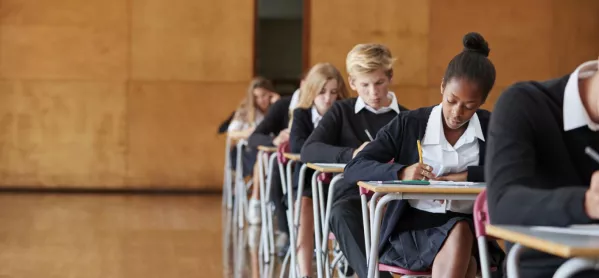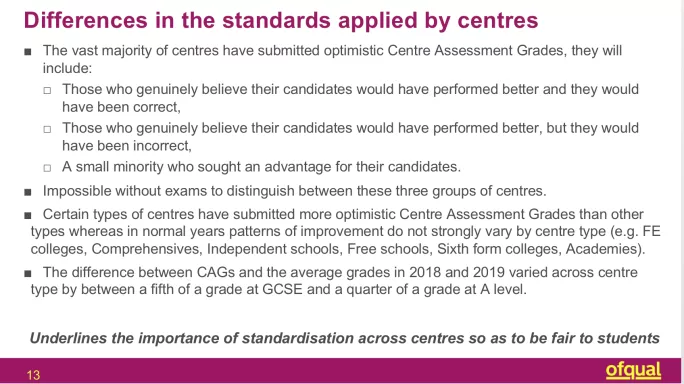Ofqual has identified patterns in the types of schools and colleges most likely to submit “optimistic” grades for this year’s GCSEs and A-levels - but claims it would not be “helpful” to provide further details.
The exams regulator has said that the vast majority of exam centres had submitted “optimistic” grades as part of the process for awarding results to pupils this year following the cancellation of exams.
But it also found that certain types of centres had been more optimistic than others. This is in contrast to previous years, it said, where “patterns of improvement” have not varied much between types of institutions.
But when asked by Tes which types of centres had been the most optimistic this year, it declined to say.
Revealed: Teachers’ optimistic grading for 2020 GCSEs
Coronavirus: Williamson warned over grading ‘injustice’
Quick read: Year 10 and below will get grades, Ofqual confirms
Ofqual revealed last week that if unmoderated teacher-assessed grades had been used, there would have been a 9 per cent increase in GCSE scores and a 12 per cent rise in A-level scores.
It has said that such an increase would be unprecedented and that some of these grades will be moved down through a standardisation process, which involves looking at the ranking of pupils schools have provided and the schools’ previous performance.
In a presentation on this year’s grading process, Ofqual said: “Certain types of centres have submitted more optimistic centre assessment grades than other types, whereas in normal years patterns of improvement do not strongly vary by centre type (eg, FE colleges, comprehensives, independent schools, free schools, sixth form colleges, academies.”
When asked which types of centres had been identified by Ofqual as being more optimistic, a spokesperson said: “In our presentation slides we picked up on the difference in centre assessment grades (CAGs) from different centre types in order to highlight that several different approaches will have been taken towards the generation of CAGs.
“These differences in approach aren’t unexpected; but identifying those centre types that have been more optimistic than others is not helpful.
“We have been looking at averages across the different centre types, but that doesn’t mean conclusions can be drawn about individual centres. However, these differences demonstrate the importance of being able to standardise grades across centres, regardless of type.”
Ofqual has said that the majority of grades submitted will remain the same and the vast majority will either stay the same or be moved by one grade.






